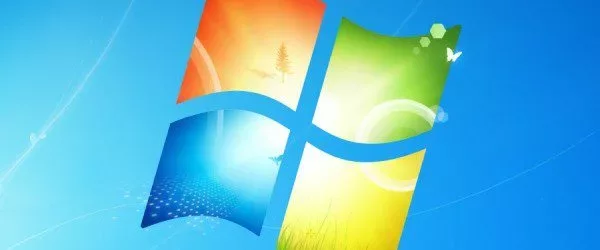Private Investigators Must Understand Computers and Technology
Several types of investigators need to have a deep understanding of computers and technology due to the increasing integration of digital systems into everyday life and the sophistication of cybercrimes. Here are some key types:
- Digital Forensics Analysts: These professionals are experts in recovering and examining material found in digital devices to investigate crimes and cyberattacks. They need to understand various operating systems, networks, and hardware.
- Cybersecurity Analysts/Investigators: They focus on protecting systems against cyber threats, identifying breaches, and investigating cyberattacks. A deep understanding of network architecture, encryption, and cybersecurity practices is essential.
- Fraud Investigators (especially in financial technology): These investigators need to understand complex financial software, online transaction systems, and methods of digital fraud to track and analyze fraudulent activities.
- Law Enforcement Officers Specializing in Cybercrimes: Officers and agents in this category deal with crimes ranging from illegal intrusions (hacking) to online fraud and cyberstalking. Knowledge of the internet, networking, and computer systems is crucial.
- Intelligence Analysts: Working in national security or for intelligence agencies, these professionals must understand various technologies to gather, analyze, and interpret information from digital sources, including the dark web and encrypted communications.
- Corporate Investigators: Many corporations hire investigators to investigate internal issues such as data breaches, intellectual property theft, or espionage. These investigators need a solid grasp of IT infrastructure and data analysis tools.
- Private Investigators (P.I.s) Specializing in Digital Investigations: While traditional P.I.s might focus on physical surveillance or background checks, those specializing in digital investigations must understand social media, email tracing, and online databases.
- Incident Responders and Threat Hunters are specialized roles within cybersecurity. They focus on responding to breaches and actively searching for potential threats within a network. Deep technical knowledge of networks, malware, and hacker tactics is required.
Each of these roles requires a blend of technical skills, including, but not limited to, computer science, information systems, and cybersecurity, and a keen understanding of their work’s legal and ethical implications. Given the rapid evolution of technology and cyber threats, continuous education is crucial to these professions.
List of Computer Terms including technology, internet, and more
Following is a list of computer terms you might encounter in a computer forensic investigation, along with a short description. This list will continue to grow over time.
Algorithm—An algorithm is a set of rules that solves a problem or answers a question. For example, Google uses a complex search algorithm to rate and rank sites in its search results.
Amiga OS – Amiga OS was the proprietary native operating system of the Amiga and AmigaOne personal computers. It was developed first by Commodore International.
Application – An application is a computer software program. Small applications that run on mobile devices are apps, which are short for application.
ASCII – American Standard Code for Information Exchange
ATM—ATM is an acronym that stands for Asynchronous Transfer Mode. It is a switching technique used to encode data into cells of a fixed size.
Authentication – Authentication is a process used to establish/confirm the identity of a user. Authentication is usually associated with the login process.
Backup—A copy of a file or files created in case something happens to the original. Backups restore files if the originals are damaged, deleted, or inaccessible.
Bandwidth – The amount of data that can travel over a network.
BASIC – Beginners All-purpose Symbolic Instruction Code. A programming language.
Boot—To turn on or start an electronic device or computer. It is also sometimes referred to as “booting up.”
Browser—Also known as a web browser, a web browser is software used to read web pages and other web-based content. View a list of the most popular web browsers.
CD-ROM (Compact Disc—Read-Only Memory)—This is a form of storage in which the data and information stored on the disc can be read but not manipulated or changed.
CMS – Content Management System.
COBOL – Stands for Common Oriented Business Language. It was the first standardized computer programming language.
Cookie—A cookie is a small file saved to a user’s computer as they browse certain websites. The file stores information that helps websites recognize you on further visits. Cookies can also be used to track your browsing activity (known as tracking cookies).
Cloud computing is when a company uses a network of servers stored on the Internet to store, manage, and process data.
CSS – Cascading Style Sheets are used to develop web pages.
Data Center – In its simplest terms, a data center is a centralized location for storing data and information. The data and information are stored on a vast array of server computers.
Encryption is encoding information, such as a message or file, to make it unreadable if intercepted.
Firewall – A firewall is the data that passes to the host computer to protect it from unauthorized access.
Google Chrome OS – Google Chrome OS is based on the Linux kernel and designed by Google to work with web and installed applications. Chrome is quickly gaining popularity due to its speed, stability, and ease of use. It is also less often the target of hackers and scammers.
GUI—GUI is an acronym for Graphical User Interface. It refers to a computer’s visual interface, including screens, designs, layout, buttons, menus, etc.
Hard Drive – A hard drive, also known as a hard disk, is a storage device used to store and retrieve digital information.
HTML – Hypertext Markup Language
Java – A programming language developed by Sun Microsystems
Javascript – Based on the Java programming language. Use to create interactive web pages.
Keyboard – An input device to type characters, numbers, symbols, and commands.
Keys – The individual components of the keyboard.
Linux – Linux is an open-source operating system modeled on UNIX.
Microsoft Windows—Currently active Windows operating systems include Windows 8 and 10. Windows runs on more computers than any other system worldwide, so private eyes must be familiar with it for computer forensics-related investigations.
Mac OSX – MAC OSX is a series of Unix-based graphical interface operating systems developed and marketed by Apple.
Mouse – A device that is used to operate a computer.
Mouse Pad – A desktop pad that makes moving the mouse easier.
Netiquette – Netiquette is short for “internet etiquette. In general, it refers to using good behavior on the internet. For example, typing messages in ALL CAPS is considered bad behavior, equivalent to yelling.
Operating System – In computing, an operating system (OS) is an interface between hardware and the user. The operating system is responsible for managing and coordinating activities and sharing the resources of a computer that acts as a host for computing applications run on the machine. One of the primary purposes of an operating system is to handle the resource allocation and access protection of the hardware. This relieves the application programmers from having to manage these details.
OSINT – Open Source Intelligence.
Reboot – To restart a computer or other device. Also, a restart.
Runtime Error – A runtime error is an error that occurs when a program is running.
Unix – Unix is a widely used multi-user operating system.
Web Page—A web page is an individual HTML page on a website. It may contain text, HTML markup, images, videos, and other types of content.
Wipe – Wipe means thoroughly cleaning all data and information off a computer.
Windows 95, 97, 99, NT, Vista – Windows is a computer operating system.
If you want to look up other technical terms and definitions, I recommend TechTerms. Also, check out our Private Detective Software and Apps.
What Do Private Investigators Need to Know?
Private detectives may need to be familiar with various operating systems for multiple reasons. First, they may specialize in providing PC forensic analysis or computer investigations. In this case, they must be familiar with the various systems to analyze activity, track down malicious code, identify errors, and gather evidence.
Second, regardless of the types of investigations offered by your business, you will undoubtedly run various operating systems on electronic devices such as computers, tablets, and mobile devices. In this instance, private detectives should be familiar with how the system works to run their business most efficiently.
Please comment below if you have any questions about this computer terms list.








